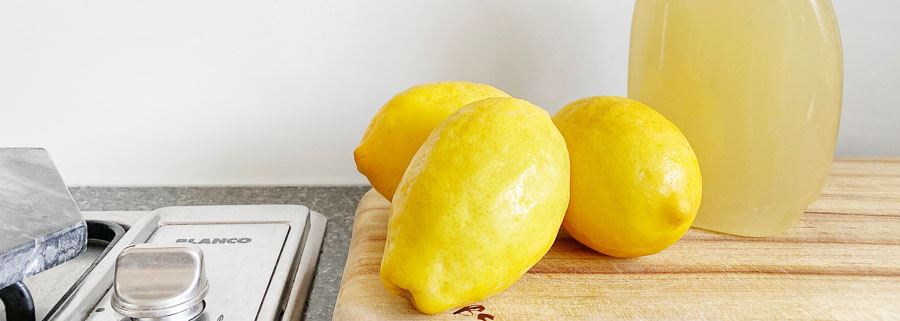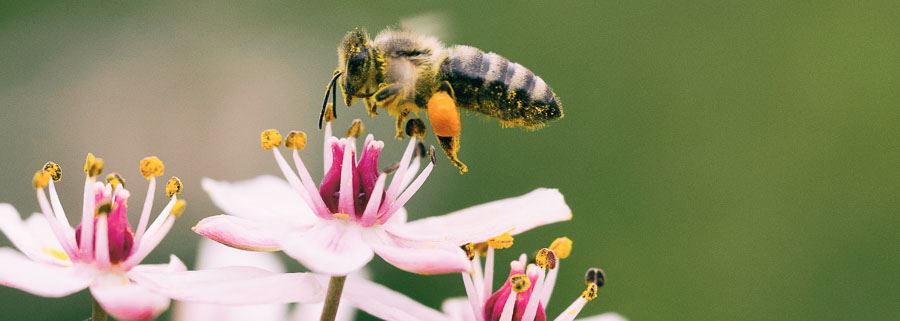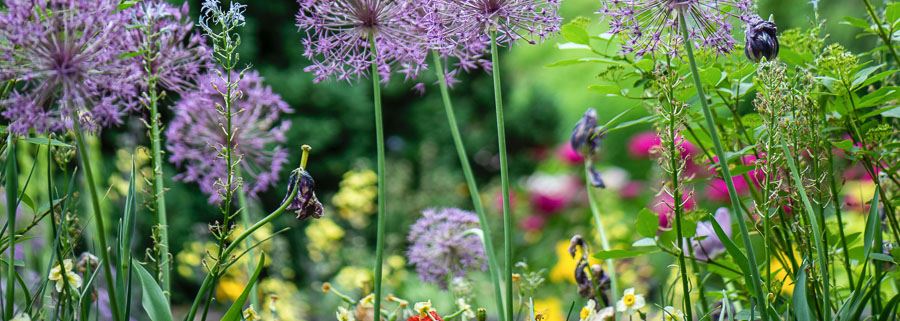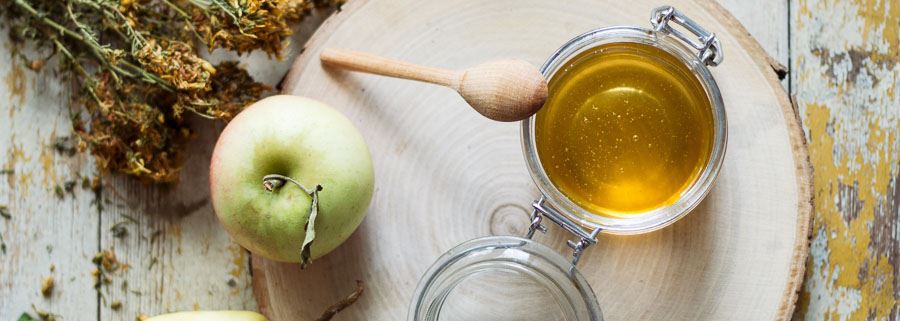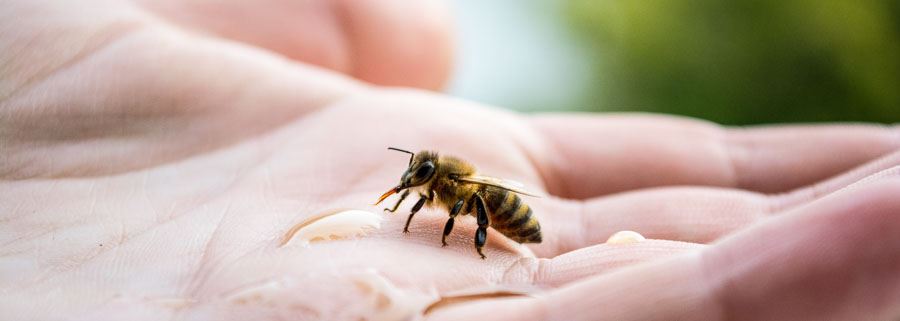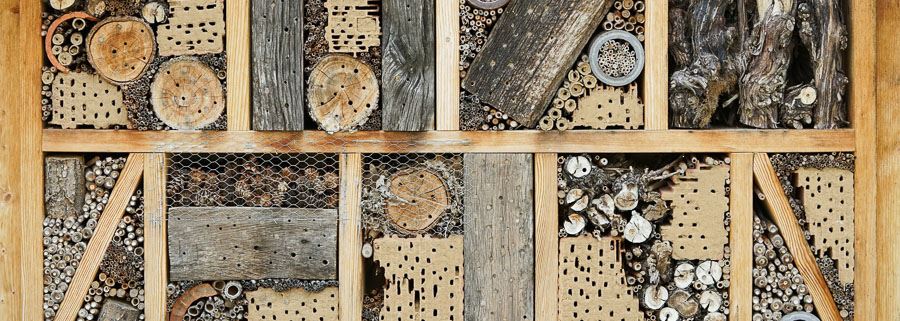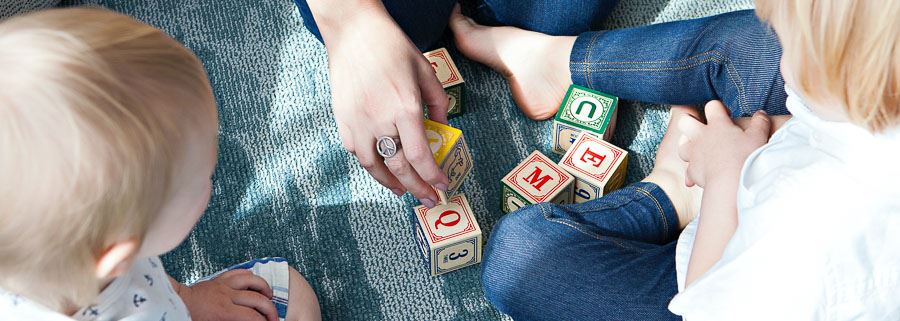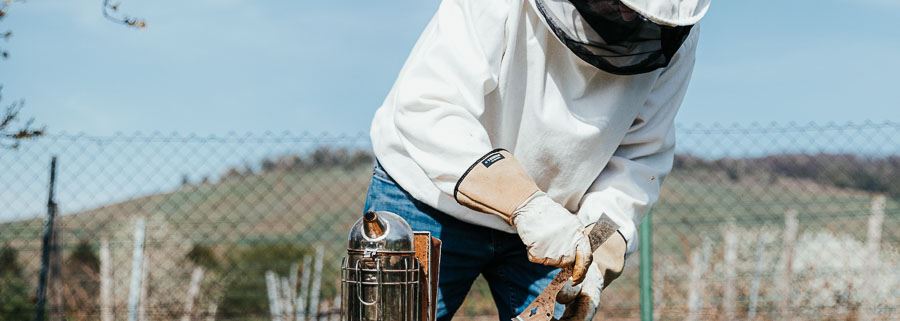Put the sprays away!
Ok, garden pests are frustrating, but did you know that pesticides are recognised as one of the leading threats to pollinators worldwide? Pesticides are neurotoxic to bees and other insects and can have a devastating impact on local garden pollinators. So how can we control pests without toxic sprays? Garden pesticides can be replaced with natural alternatives such as garlic, onion or salt spray, soap & orange citrus oil or even chilli or pepper spray. There are loads of great DIY natural pesticide recipes online. Remember even natural sprays can harm pollinators so make sure to only use them outside of foraging hours. Companion planting is a great way to naturally discourage insects from eating your prized plants and attract predatory insects to munch those which are munching. Plant bee-friendly flowers
Even if you don’t keep bees, planting a bee friendly garden is something anyone can do. When selecting your garden blooms, make sure to include some local native plants in a variety of different colours. This RIRDC Bee Friendly Planting Guide is one of our favourite guides to help determine what bee-friendly plants will grow well in your area. Bees, like humans, enjoy diversity. Include flowers of different sizes and shapes and plant in clumps to make foraging a breeze. Find plants that bloom at different times of the year. Support a range of different pollinators throughout the different seasons. Trees and shrubs produce much higher quantities of pollen and nectar, however, smaller plants produce forage more regularly – it’s great to have a selection of both. Check out our gardening page for more tips. Let your garden get a little messy
Ok, so most people love a neat lawn and weed-free garden beds, however, traditional lawns are pollinator deserts and most weeds (eg dandelions and clover) are a great source of forage for the bees. Let your veggie and herb plants flower and let the dandelions bloom – the bees get to forage and you get some time off gardening duties – win-win!
Source local honey
Once you’ve tried locally produced honey you may never want to go back to the supermarket. Get to know your local beekeepers and support this important industry. Wherever you source your honey from, read the label to make sure that it is 100% Australian Honey.
Provide an oasis
Bees need drinking water too. It’s a good idea to provide them with a water source as they’ll often drown in pools (which don’t have the healthiest water for bees) or pet bowls. When given a choice they have a preference for dirty water that has become murky with algae. In the heat of summer, set up a bee pond with safeguards like rocks, so that the bees don’t drown. Help create pollinator spaces in your garden
There are over 19,000 different species of bees globally, many of which are solitary nesting pollinators. Different types of pollinators require different types of homes. Cavity-nesting bees, use hollow plant stems or holes in wood for laying their eggs. In addition to nesting, some species like to hibernate over winter and are on the lookout for sheltered spaces with plant matter as insulation. Set up a Pollinator House or create pollinator zones in your garden. There are plenty of other ways you can help support pollinators, such as providing space for bumblebees to create underground nests or drilling holes in wood for carpenter bees. Leave the ground undug and some sticks in place to create a natural habitat for ground-nesting pollinators. Help educate children on the importance of pollinators
As they say, the children are our future. Educating children about bees and pollinators is a great way to get them involved with caring for the environment and provides an excellent excuse to get them outdoors and off the screens! Plus – bees are fascinating! If you have a vegetable garden, this can be a fun way to introduce the importance of pollinators – we need them to pollinate one-third of our food crops and 90% of our wild plants. Use your choice to change the world
Did you know that all of your buying choices have a flow-on effect? The choice to buy organic or non-organic produce is about more than just your health (though this is a great part!). Buying organic produce supports organic farming practice, which makes these a commercially viable option for farmers. When you eat organic food, you’re choosing to give your body a break from harmful chemicals and you are helping farmers to provide clean forage for pollinators and a home which isn’t poisonous. The simple choice of buying an organic cotton T-shirt over a regular cotton T-shirt means that the thousands of flowers grown to produce it have been able to grow without the use of pesticides. This has an enormous effect on the local surrounding flora and fauna.
Become a beekeeper
One of the most rewarding (and fun) ways to support the bees is by becoming a beekeeper. Discover the fascinating world and experience how caring for your own colony connects with your local environment. Learning all about, and looking after your own colony is a fantastic way to get involved. There’s never been a more important time to act. Check out our Beekeeper’s starters page if you’re interested in getting started in Beekeeping in South Australia. |


